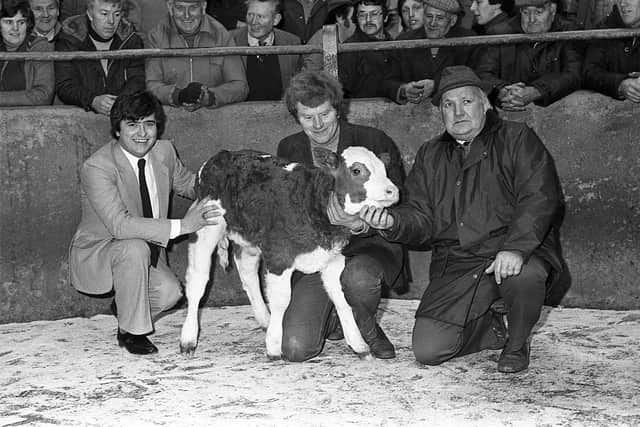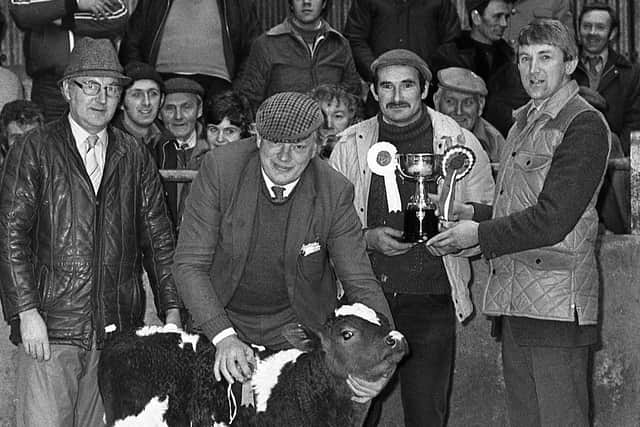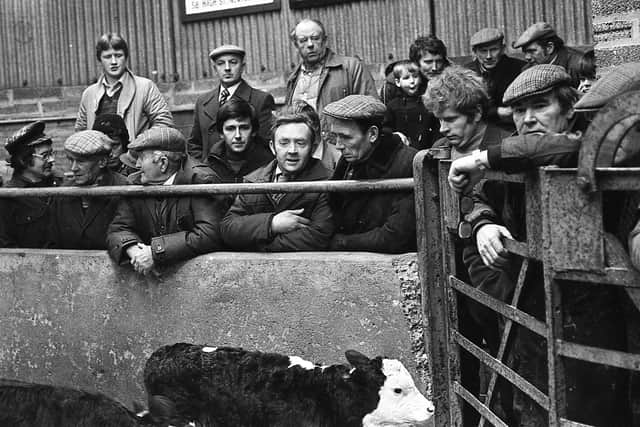‘Operation Noah’s Ark’ needed in province warns local producers (1967)
and live on Freeview channel 276
Opinions were expressed in Ballymena during this week in 1967, reported Farming Life, that the lack of adequate facilities was creating a farcical situation and that unless something was done the live cattle export trade might be switched to the Republic of Ireland.
One farmer gave two instances which he declared “could be multiplied many times”, of the kind of thing which could arise in the peak period for cattle shipments during the summer from July onwards and into December.
Advertisement
Advertisement
Cargoes of cars were heavy in the summer period and obviously the shipping companies would take cars before cattle because cars were clean cargo.


In 1966, he said, an Englishman arrived in Belfast with the intention of buying 100 fat cattle. Having made his arrangement with a bank he went along to a director of one of the shipping companies and asked how many cattle the company could put on the boat that night. He was told one wagon load (12 cattle), and no more. The English buyer, a large wholesaler, travelled at once to Dublin and bought his 100 cattle there and had been doing business there ever since.
The other instance concerned a boat which unloaded a cargo at Belfast in 1966 and sailed to Dublin empty. At Dublin it loaded up with cattle, and the consignment included cattle which had to be sent down there after having come to Belfast where no shipping was available.
Local shipping companies were apparently waiting for a lead from the Northern Ireland government as to whether their policy was to ship meat live or dead out of the province.
Advertisement
Advertisement
Some of the shipping companies would require extra shipping space to cope with the numbers of fat cattle to be shipped during the busy summer period. They were not disposed to spend this sort of money required one more ships for live cattle if the policy of the government was to try and encourage the dead meat industry which had been the policy “up to now” and that it wasn’t showing any signs of so developing.


Mr Robert Orr, managing director of the Ballymena Livestock Mart Ltd, when asked for his views on the matter said: “Unless something is done to alleviate the shipping problem of live cattle from Northern Ireland we are going to find ourselves with the cattle trade sacrificed to the Republic of Ireland. There they are on their toes and awake to the situation.”
Mr Orr said that it had to be borne in mind that 90 per cent of all fat cattle produced in Northern Ireland was handled by the livestock auction marts.
It said it was was costing £2 per head for freighting cattle from Northern Ireland to Dublin for shipment from there, thus adding to the exporters’ expenses, “which must eventually be passed on to the producer”.
Advertisement
Advertisement
It was his opinion that if the same amount of money had been channelled into subsidisation of live cattle out of Northern Ireland as had been channelled into the establishment of factory abattoirs, the cattle trade in Northern Ireland would have been “in a healthier state”.


Asked if he wished to comment on a reported statement by Mr M Loane, chairman of the beef committee of the UFU that if cattle were to go in containers as dead meat, something like £1 per head would be saved to the farmer in transport costs, Mr Orr said that while “it might reasonably be assumed that the farmer could save £4 in shipping costs, it might cost him £8 in the price of his finished beef”.
Denmark to take more NI cattle: Meanwhile an opening for Northern Ireland cattle exports to Denmark was one of the surprises at the Royal Dublin Society's spring show and sale which had been held at Ballsbridge this week during 1967.
A total of 680 guineas was paid to Saintfield breeder Mr R A McBride for two prize-winning Aberdeen Angus bulls which were bought by Mr Victor Fradley, the general manager of McRoberts Trust Farms, Douneside, Aberdeenshire, representing the Danish Angus Society.
Advertisement
Advertisement
Mr Fradley said: “We are especially interested in Ulster Angus cattle because of the new regulations in Denmark which demand that only government-tested brucella free stock may enter the country. It is likely that the Danish Angus Society will purchase several hundred Northern Ireland cattle within the next few years. The aim is to build up the beef market in Denmark. Northern Ireland is the only part of the British Isles which has introduced compulsory tests against brucellosis.”